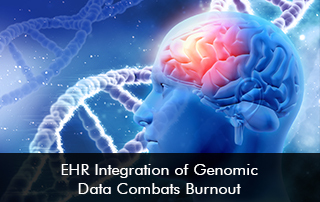Genomic data EHR Software integration could save providers time and mitigate clinician burnout according to a study in Genetics in Medicine. Genomic testing can be valuable in different medical scenarios such as determining the risk of breast cancer and offering insights into which medications will perform the best to improve patient outcome levels. However, genomic testing includes a massive amount of data that can be difficult to gather.
Using genomics data
As genomic medicine is advancing, the use of Electronic Medical Records (EMR) Software and EHR systems has concurrently been leveraged into daily practice. Penn Medicine’s Information Services team and different clinical research departments created the PennChart Genomics Initiative (PGI) in 2019 to make the ordering and usage of genomic data easier.
Integration of unstructured genetic data into the electronic health records software
Germline and somatic data have been integrated into the EHR solution. Presently, most genetic results are reported in unstructured documents. Collective procedures have been established across all of Penn Medicine’s clinical genetics services for genetic testing reports and labeling them with a common name. The document is then scanned into specific Genetic Results documentation type which filters into the lab and the PennChart Precision Tabs. A latter tab has been formed that acts as a centralized location in the EHR software to enable seamless access to all genetic data. It ensures that the clinician doesn’t overlook this information when other tests are being conducted over a patient’s lifetime.
Time savings with EHR integration of genomics data
The researchers at Penn established that when clinicians had to go outside the electronic health records to order a genomics test it consumed an average of eight minutes. With EHR software integration of genomic data, healthcare providers could order the test in two minutes – resulting in 75 percent time savings.
When it is easy to order tests and comprehend the results patient care can enhance and also the burden on clinicians can reduce. When genomic data is integrated into the EHR software system it can improve clinical diagnosis, precision medicine, and the treatment of genetic disorders. An electronic health record is a robust interactive tool that can be used to enhance the healthcare of patients and populations.







